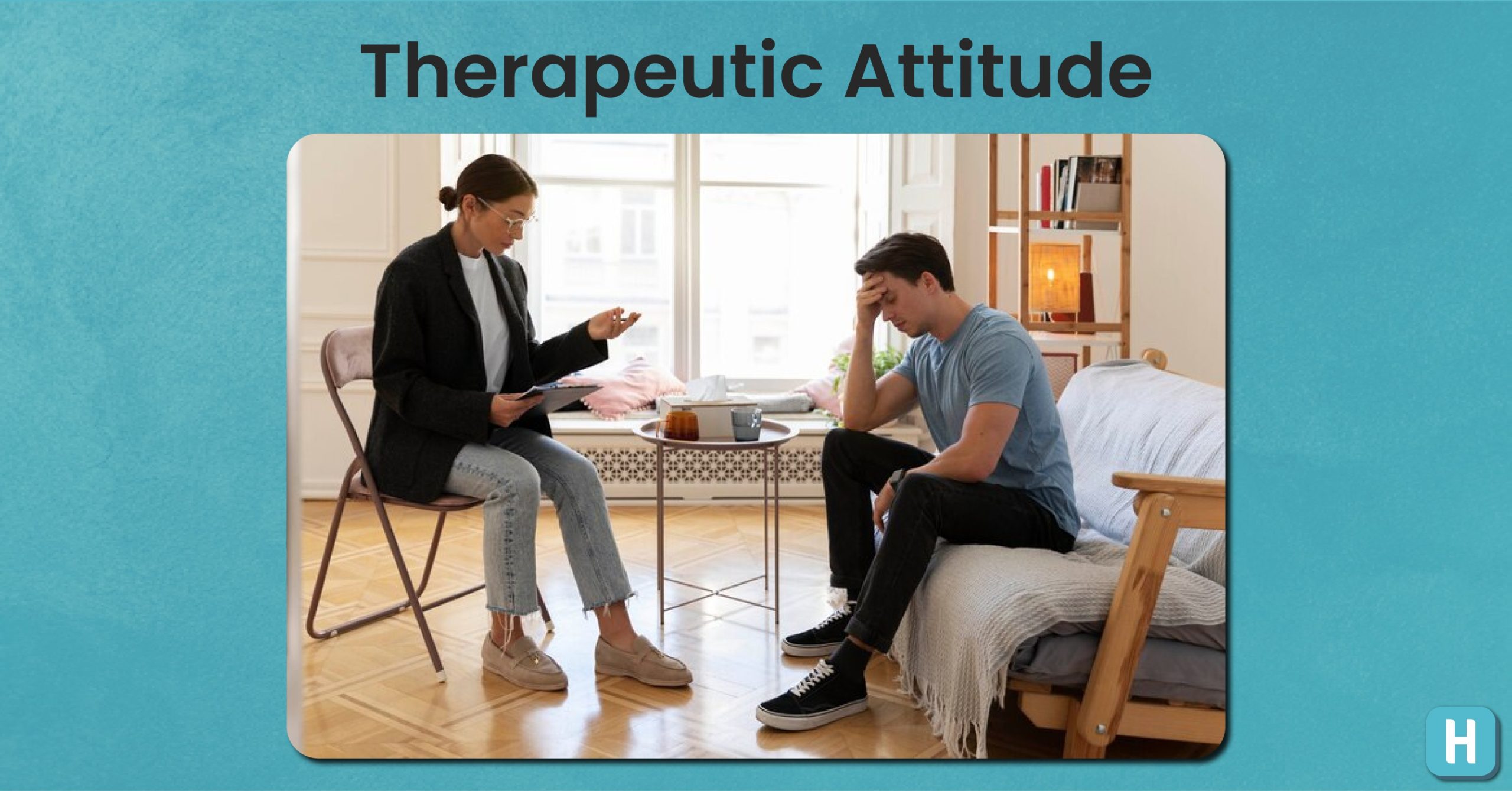Starting therapy can feel daunting. You’re opening up about your vulnerabilities and hoping for positive change. But the foundation of successful therapy lies in the therapeutic relationship – a partnership between you and your therapist built on trust, communication, and a shared commitment to your well-being. This partnership is crucial, as research from the American Psychological Association shows that a strong therapeutic alliance is a key predictor of positive outcomes in therapy.
What is a Therapeutic Attitude? Understanding Its Importance for Patients
A therapeutic attitude is a mindset that fosters open communication and a willingness to explore your thoughts and feelings. It involves approaching therapy with a sense of curiosity, honesty, and a desire to learn and grow. This attitude sets the stage for a productive therapeutic alliance, where you and your therapist work together towards your goals.
Understanding Therapeutic Communication: What Patients Need to Know
Therapeutic communication is a specialized form of communication used in therapy. It involves active listening, empathy, and a focus on understanding your experiences. It’s not just about talking; it’s about creating a safe space for you to share your thoughts and feelings openly and honestly. This type of communication is essential for building trust and a sense of safety in therapy, allowing you to feel comfortable exploring your inner world.
Key Principles of Therapeutic Communication: How It Helps Patients

Effective therapeutic communication relies on several key principles, all of which contribute to a positive and productive therapeutic experience:
Respect
Your therapist treats you with respect, regardless of your beliefs, values, or behaviors. They create a safe and non-judgmental space for you to explore your thoughts and feelings.
Empathy
Your therapist strives to understand your emotions and experiences from your point of view. This doesn’t mean they agree with you, but it means they acknowledge and validate your feelings.
Confidentiality
Your therapist maintains strict confidentiality, ensuring that your conversations remain private. This fosters trust and allows you to feel safe sharing your deepest thoughts and feelings.
Active Listening
Your therapist focuses on understanding your perspective without judgment. They pay attention to your verbal and nonverbal cues, asking clarifying questions to ensure they grasp your meaning.
Questions to Ask Your Therapist: Enhancing Therapeutic Communication
Asking questions is essential to building a strong therapeutic relationship. It’s the key to building stronger connections with your therapists and getting to the bottom of the problem along the way. Don’t hesitate to ask your therapist:
- What are your qualifications and experience?
- What is your approach to therapy?
- How will we work together to achieve my goals?
- What can I expect from therapy sessions?
- What are your fees and insurance policies?
Building a Therapeutic Relationship: Tips for Patients
Building a strong therapeutic relationship is a collaborative process. Professionals and patients both need to learn how to adjust to the new process. However, we understand it’s challenging when you’re the one receiving therapy. Here are some tips for patients:
- Be Patient: It takes time to build trust and develop a strong therapeutic relationship.
- Be Open and Honest: Share your thoughts and feelings openly and honestly, even if they feel uncomfortable.
- Be Kind to Yourself: Therapy can be challenging, but remember to be patient and compassionate with yourself.
- Be Active in Therapy: Engage in the process, ask questions, and share your feedback.
The Role of Empathy in Therapy: Why It Matters to You
Empathy is crucial in therapy. It allows your therapist to connect with you on an emotional level, understand your experiences, and offer support. Empathic counseling and therapy create a sense of validation and understanding, making you feel heard and supported.
Active Listening and Building Trust: What Patients Should Expect
Active listening is a fundamental aspect of therapeutic communication. Your therapist will pay close attention to your words, tone, and body language, reflecting back on what they hear to ensure understanding. This active listening fosters trust and a sense of being truly heard.
Group Therapy: Building Trust with Others
In group therapy, you’ll work with others who share similar experiences. Building trust with your group members is essential for a positive therapeutic experience. It allows you to feel safe sharing your vulnerabilities and learning from others’ experiences.
Client-Centered Therapy: What It Means for Your Care
Client-centered therapy puts you at the center of your care. Your therapist focuses on your unique needs and goals, providing a supportive and non-judgmental environment for you to explore your thoughts and feelings. This approach emphasizes your active participation in the therapeutic process and empowers you to take ownership of your well-being.
Understanding the Therapeutic Alliance: Your Partnership with Your Therapist
The therapeutic alliance is the bond that forms between you and your therapist. It’s a collaborative partnership based on trust, respect, and a shared commitment to your well-being. A strong therapeutic alliance is essential for positive therapeutic outcomes.
Person-Centered Therapy Techniques: How They Benefit Patients

Person-centered therapy techniques focus on your individual needs and experiences. They involve:
Unconditional Positive Regard
Your therapist accepts you unconditionally, regardless of your thoughts, feelings, or behaviors.
Empathy
Your therapist strives to understand your perspective and validate your emotions.
Congruence
Your therapist is genuine and authentic in their interactions with you.
Active Listening
Your therapist listens attentively and reflects back your feelings and experiences.
Compassion in Therapy: How It Enhances Your Experience
Compassion in Therapy: How It Enhances Your Experience
Compassion is a vital part of effective therapy. Your therapist’s therapeutic presence should be characterized by warmth, understanding, and a genuine desire to help you heal. Compassion-focused therapy emphasizes cultivating self-compassion and kindness, which can be transformative in your journey towards healing.
Ready to start building a strong therapeutic relationship? Helply is here to support you. We offer a range of mental health services, including individual therapy, group therapy, and online resources.
Take the first step towards a healthier you.

